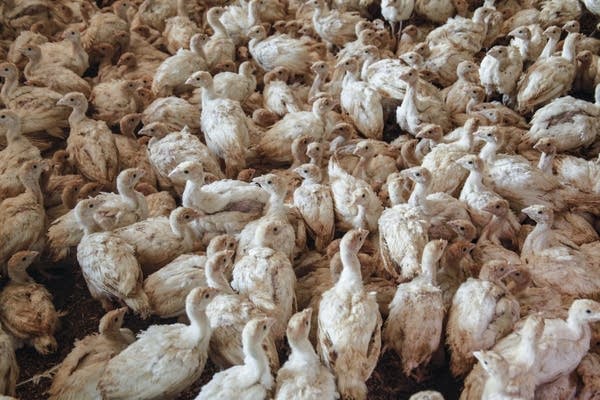Minnesota's two largest export markets push for NAFTA renewal

Go Deeper.
Create an account or log in to save stories.
Like this?
Thanks for liking this story! We have added it to a list of your favorite stories.
Minnesota's two largest export markets are touting the benefits of the North American Free Trade Agreement, which may be headed for a renewal in Washington, D.C. as early as next month.
Canadian Consul General Paul Connors and Mexican Consul Gerardo Guerrero, who spoke Tuesday at a Minnesota Chamber of Commerce breakfast, have been on the road pitching the value of NAFTA to Minnesota factories, farmers and workers.
Joining them at the breakfast was Minnesota Department of Employment and Economic Development commissioner Shawntera Hardy, who noted the benefits of Minnesota's trading partners when the state's turkey industry got hit with avian flu in 2015.

"One of the countries that stepped up and said, 'We'll still buy your good turkeys', was Mexico. And they helped us weather that storm," said Hardy.
Turn Up Your Support
MPR News helps you turn down the noise and build shared understanding. Turn up your support for this public resource and keep trusted journalism accessible to all.
Minnesota is the biggest turkey producer in the U.S., with a nearly billion dollar industry. And about one-seventh of those turkeys are shipped out of the country in one form or another.
Canadian consul general Connors said the tariff-free transfer of vehicle parts works for Canadian bus maker New Flyer, with operations in St. Cloud and Crookston.
"They have fifteen truck trailers a day cross the Minnesota-Manitoba border bringing parts and components back and forth between Winnipeg and their two locations in Minnesota as they build the largest amount of buses in North America," said Connors.
Despite President Donald Trump's repeated scorn for the deal, his administration is nearing a renewal of the trade agreement first signed in 1994, now dotted with archaic details like regulations on cassette players in cars.

It's also been blamed for depressing wages to benefit corporate profits, paring back the bargaining power of unions, and exacerbating economic disparities. The AFL-CIO has called for tougher labor laws as part of the deal.
"We're going to keep fighting for a trade model that's different, that isn't just answerable to corporate interests, but is really answerable to ordinary families in all three NAFTA countries," said Celeste Drake, the labor organization's trade policy specialist in Washington, D.C.
Even state officials say Minnesota is part of the trade imbalance that has drawn the ire of other critics — including the president when he talks and tweets about NAFTA.
Minnesota imported an estimated $10 billion worth of products from Canada last year, and exported about $4.3 billion there, although that gap is almost entirely comprised of $6 billion in Canadian fuel oils coming into the U.S. market through Minnesota.
And the state actually exports more than it imports from Mexico, according to DEED, the state's economic development agency. Imports were valued at $2 billion, and exports at $2.4 billion.
Without NAFTA, trade may look very different, according to Mexican consul Guerrero.
"Turkey would pay a tariff of 10 percent," said Guerrero. "Cheese 45 percent. So with NAFTA, all the exports to Mexico are free trade."
Gov. Mark Dayton sent a letter supporting a new NAFTA to Washington in February. DEED commissioner Hardy said the NAFTA export market, adjusted for inflation, has grown about 50 percent in Minnesota since the deal was passed in 1994.
Officials following the talks say Canada, Mexico and U.S. negotiators are hashing out some of the final technical details now.



